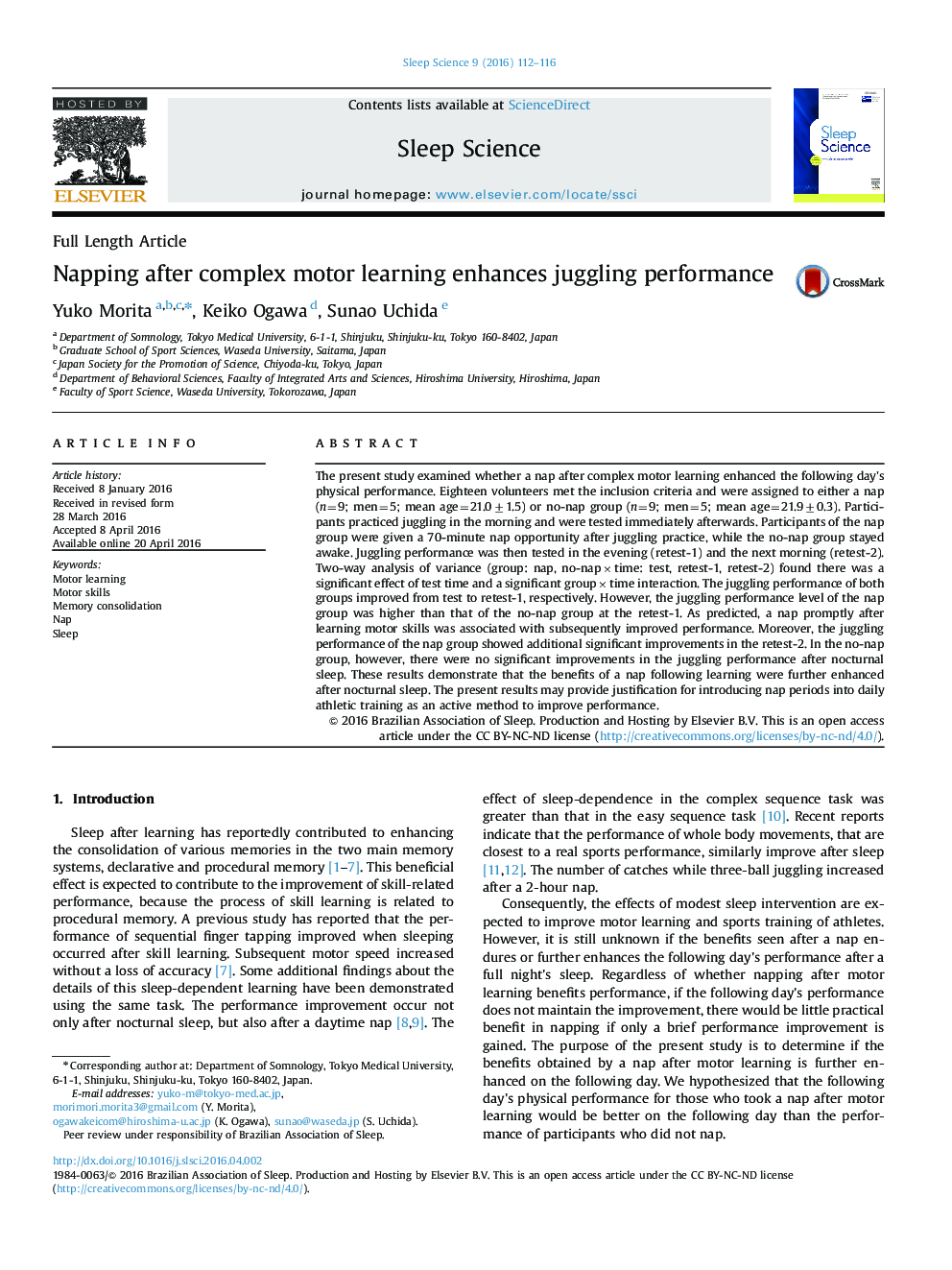| Article ID | Journal | Published Year | Pages | File Type |
|---|---|---|---|---|
| 3026591 | Sleep Science | 2016 | 5 Pages |
The present study examined whether a nap after complex motor learning enhanced the following day's physical performance. Eighteen volunteers met the inclusion criteria and were assigned to either a nap (n=9; men=5; mean age=21.0±1.5) or no-nap group (n=9; men=5; mean age=21.9±0.3). Participants practiced juggling in the morning and were tested immediately afterwards. Participants of the nap group were given a 70-minute nap opportunity after juggling practice, while the no-nap group stayed awake. Juggling performance was then tested in the evening (retest-1) and the next morning (retest-2). Two-way analysis of variance (group: nap, no-nap×time: test, retest-1, retest-2) found there was a significant effect of test time and a significant group×time interaction. The juggling performance of both groups improved from test to retest-1, respectively. However, the juggling performance level of the nap group was higher than that of the no-nap group at the retest-1. As predicted, a nap promptly after learning motor skills was associated with subsequently improved performance. Moreover, the juggling performance of the nap group showed additional significant improvements in the retest-2. In the no-nap group, however, there were no significant improvements in the juggling performance after nocturnal sleep. These results demonstrate that the benefits of a nap following learning were further enhanced after nocturnal sleep. The present results may provide justification for introducing nap periods into daily athletic training as an active method to improve performance.
